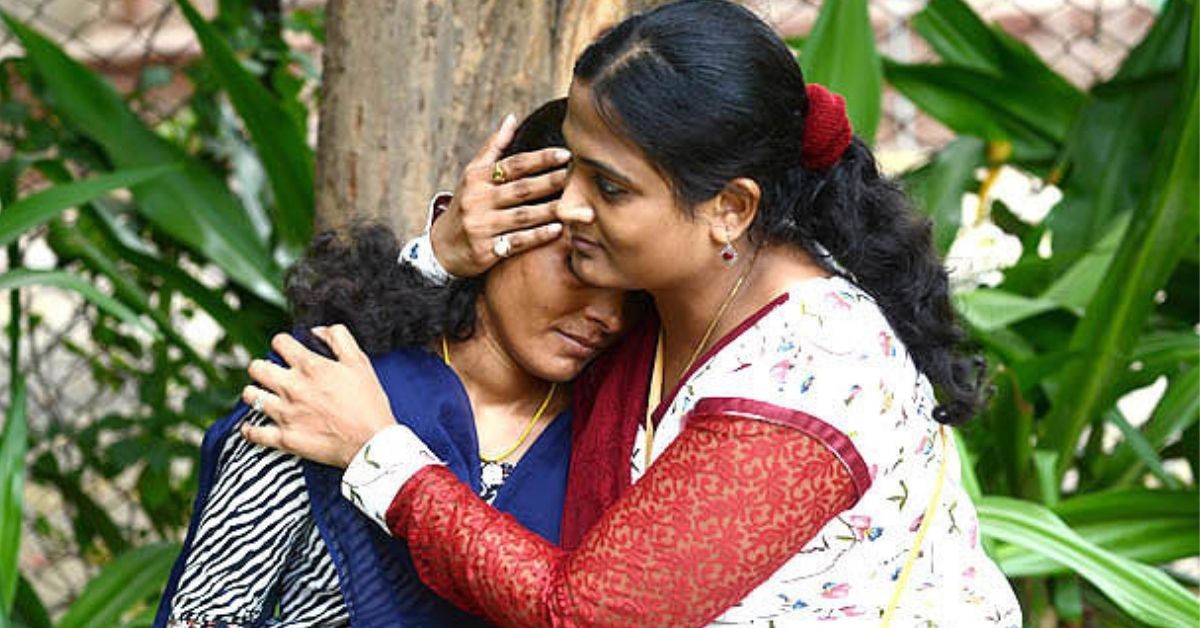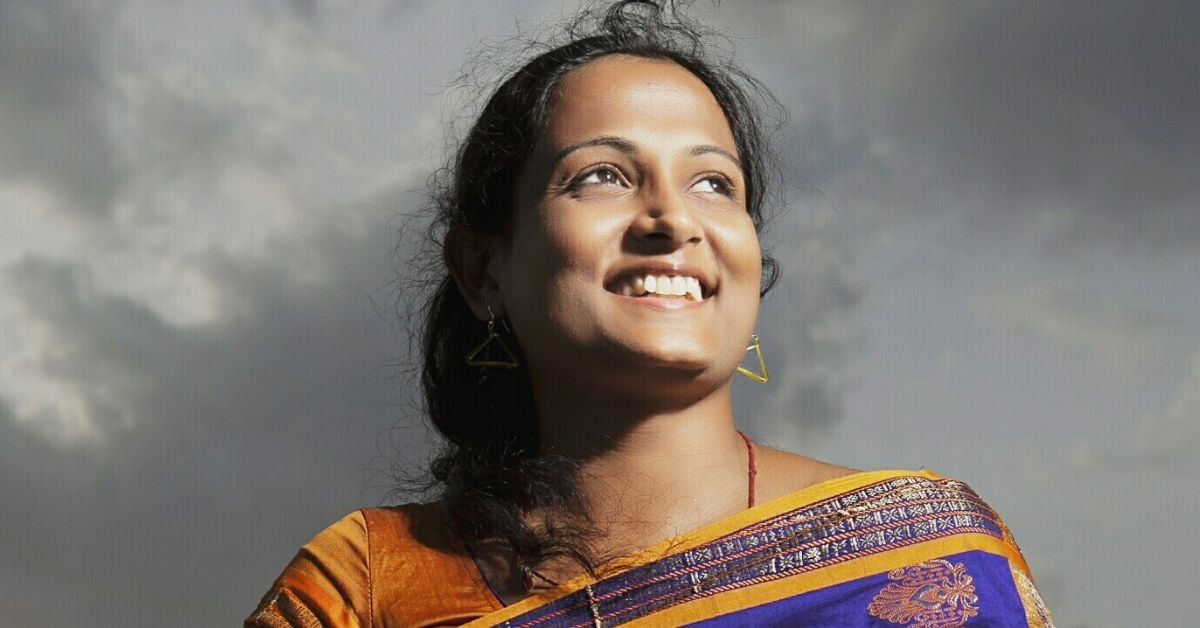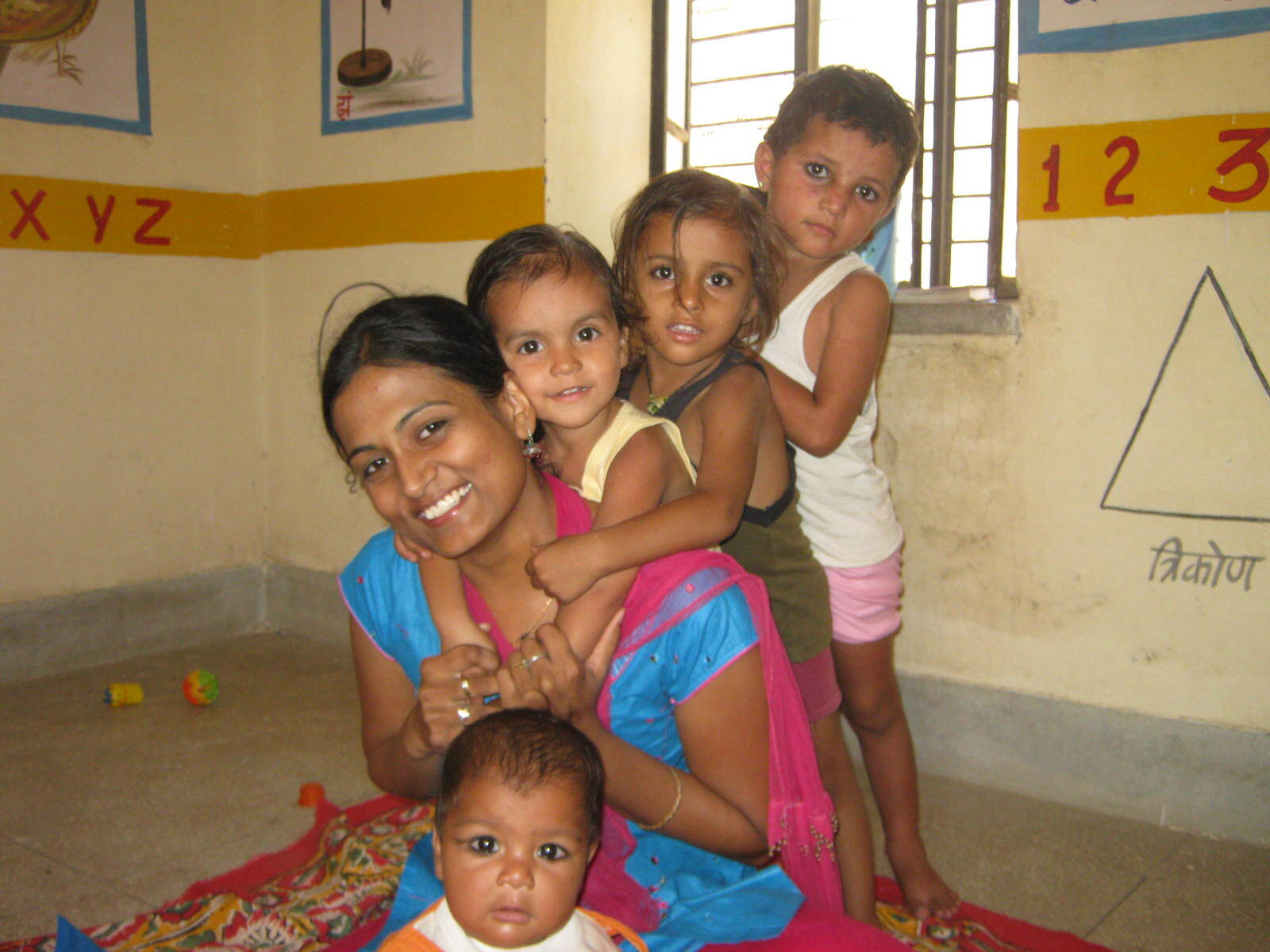Despite Rape Threats & Abuse, 32-YO Jodhpur Woman Rescues More Than 1,400 Child Brides
Born amid severe physical abuse and neglect, 32-year-old Dr Kriti Bharti from Jodhpur heads the Saarthi Trust, and has helped annul 41 child marriages and stopped over 1,400 such weddings from taking place. She was responsible for India’s first child marriage annulment - the Laxmi Sargara case.

In 2012, then 18-year-old Laxmi Sargara from Luni, Rajasthan, made international headlines for being the first woman in India to have her child marriage nullified. She was married at the age of 1 when her husband was 3.
Laxmi only found out about her marriage when her in-laws came to pick her up on her 18th birthday. Devastated, she ran away to Jodhpur, 40 km from Luni, to avoid being taken away to live with a man she had never known. Here, she turned to Dr Kriti Bharti, who runs the Saarthi Trust, an NGO dedicated to rehabilitating victims of child marriage.
Thanks to Dr Kriti’s endeavours, Laxmi was able to have her marriage annulled. She remarried the following year — but this time, for love.
Saarthi was only a few months old when Laxmi’s case came to them. Dr Kriti, who helms the organisation, has since helped several young girls escape the grips of lifelong subjugation and trauma.

A new birth
Thirty-two-year-old Dr Kriti, who was born in Gujarat but hails from Jodhpur, says this was not planned. “I learned what abuse and exploitation were even before I knew how to read the alphabet,” she recalls. Her father left before her mother gave birth, and due to the immense trauma and stress, she faced complications during her pregnancy. “They said you could either save the mother or the baby,” says Dr Kriti, adding, “The situation was pretty filmy (laughs).”
Dr Kriti’s family wanted her mother, who was single, to abort the foetus and remarry, but the defined time period for the procedure had passed. “I was born after spending only seven months in my mother’s womb,” she says.
But even if her birth was a miracle, those around her didn’t care. “No one accepted me. I would often have to hear abuses and slurs related to my father,” she says.
Growing up, Dr Kriti was subjected to physical and emotional abuse. At the age of 10, she was slow-poisoned by a relative. “The poison affected my spinal cord, due to which I was left paralysed. I couldn’t walk or sit, or even go to school. My mother spent the next two years exhausting all avenues for my treatment,” she says. At the age of 12, Dr Kriti began to recover, for which she credits Reiki — a Japanese form of alternative medicine.
But one of her first revolutionary steps, she says, was changing her surname. “In India, especially if you’re a woman, a surname holds too much importance. But I don’t care for any religion or caste, and so I took on ‘Bharti’, which simply means, ‘Bharat ki beti’ (India’s daughter),” she tells The Better India.
While interning with different NGOs, Dr Kriti began working with several distressed young girls. But she found that these NGOs engaged with them only at awareness levels. “I found that engagement and making changes at the grassroots was missing,” she says.
This need for tangible change led to the establishment of Saarthi Trust in 2011 when she was 22.

The work done by ‘Bharat ki beti’
Even though child marriage has been illegal in India since 1929, it’s prevalence throughout the country is no secret. Parents or older spouses can be punished with up to two years in prison for coordinating or allowing arrangements that ignore these restrictions. According to National Geographic, while the rate of these marriages has plummeted in the last decade, there are more underage brides in India than anywhere else in the world.
“While weddings have been stopped, not much is done for girls that have already fallen into the trap of these marriages. I found that no remedies existed for them after they were married. Based on this, we saw through the first annulment of a child marriage in India — Laxmi’s case,” Dr Kriti says.
Winning Laxmi’s case was monumental. Saarthi found recognition by the Limca Book Of Records, and even in the CBSE syllabus. While Rajasthan is notorious for child marriages, it is also the first state to see the annulment of such a marriage and is now India’s leading state in the most number of such annulments — 14, all thanks to Dr Kriti.
Since then, she has gone on to help 41 child brides annul their marriages, stopped 1,400 weddings from taking place and has rehabilitated 7,000 children under various programmes, including victims of child labour, sexual offences, and HIV. Additionally, Saarthi Trust has gone to various villages across the state and got 20,000 people to take oaths that they would not engage in child marriage and that they would notify the NGO, or even the government, in case they come across any such case.

‘A new woman’
Santa Devi (24), from Jodhpur, was married when she was only 11 months old, and like many other child brides, only found out when she turned 18. Her husband was violent and a drunk, and would often partake in eve-teasing.
As she had protested being taken away to live with her in-laws, she had been socially ostracised (jaati bahar) by the jaati panch (caste-specific juries of elders in villages), which had also imposed a fine of Rs 16,00,000 on her family for not going along with her gauna. Her future, at the time, held only two options — either give into the marriage or have her father, a daily wager, pay the hefty sum. Due to being ostracised, Santa Devi and her family were not allowed to leave their home to interact with anyone in their community or even buy groceries.
She approached Saarthi in 2015 to have her marriage annulled with her father who, at the time, was supportive of the decision. She says she found out about Dr Kriti after she heard of Laxmi’s case. When Saarthi got involved, Santa Devi’s husband sent her severe rape threats, demanding she drop the case. Dr Kriti says local politicians even threatened to shut her NGO down on national television as well.
Owing to immense pressure from his community, Santa Devi’s father eventually turned against the annulment. He told her he would disown her if she didn’t give up on the case and return home. But Dr Kriti reassured her she would not give up.
“I could maintain my resolve even amid the pressure from the jaati panch only because didi was with me,” Santa Devi tells The Better India, and adds, “She transformed me into a new woman, and taught me everything I know today. For that, I am very grateful to her. She was there for me when no one else was, and I’ll never forget her.”
Today, Santa Devi works as an advisor at Max Life Insurance. Dr Kriti helped her complete her education, find a job in the corporate field, and even helped her get married in August last year, with a man that she truly loves.
“In these cases, families are aware that if they threaten to abandon the girl, she will have nowhere to go,” adds Dr Kriti. The livelihood, education, and entire welfare of these girls is then taken up by Saarthi Trust. Additionally, legal fights against the jaati panch and family counselling are also taken care of by the organisation.
Dr Kriti says that in most cases, when a girl arrives at the NGO, her first question is always, “I don’t have any money. How will I repay you?”
“I always tell them that my only fee is that the girls complete their education. The idea is that they complete their studies, no matter how many tries it takes,” she says.
Amid several challenges
Dr Kriti has had to face several threats to her life throughout her journey. These even come from the supposedly learned, educated and upper-class families. “As women, we are all too familiar with rape threats. I’ve been attacked several times, and people have also tried to get me kidnapped. Sometimes, I have to warn my mother to not open the door before checking who it is,” she says.
“But everyone has to die and so I believe that if someone does succeed in killing me, I’d have saved 10 people before that already. So who really wins?” she smiles.
Other than these threats, she faces the challenge of the absence of support for the young girls they save. Dr Kriti, who works with various consultancies as a psychologist, uses her earnings to cover for these girls. “We have a few donors and organisations affiliated with us. But we have a large number of girls, and fewer people to support them,” she says.
Speaking about challenges faced due to the COVID-19 pandemic, she says, “During the lockdown, informants could not step out of their homes to assess where child marriages were taking place. The government and police’s focus had also shifted entirely on the coronavirus, and rightfully so. But in this duration, several families realised they could get away with getting their children married with fewer repercussions. Several girls also had their gauna done.”
Another issue was the closing of most courts, which led to several cases being stuck. Also, many donors withdrew or reduced their funds, owing to loss of jobs, or reduced salaries. Regardless, Saarthi persevered.
Dr Kriti says she dreams of a future where child marriage is just a pair of words found in textbooks, and not a grim reality that 27% of girls in India have to live through.
On Saarthi’s website, she calls for children to be shown love and care everywhere.
“I always tell my girls, ‘I had no one for me, but you will always have Kriti didi’,” she says.
(Edited by Yoshita Rao)
If you found our stories insightful, informative, or even just enjoyable, we invite you to consider making a voluntary payment to support the work we do at The Better India. Your contribution helps us continue producing quality content that educates, inspires, and drives positive change.
Choose one of the payment options below for your contribution-
By paying for the stories you value, you directly contribute to sustaining our efforts focused on making a difference in the world. Together, let’s ensure that impactful stories continue to be told and shared, enriching lives and communities alike.
Thank you for your support. Here are some frequently asked questions you might find helpful to know why you are contributing?


This story made me
-
97
-
121
-
89
-
167











